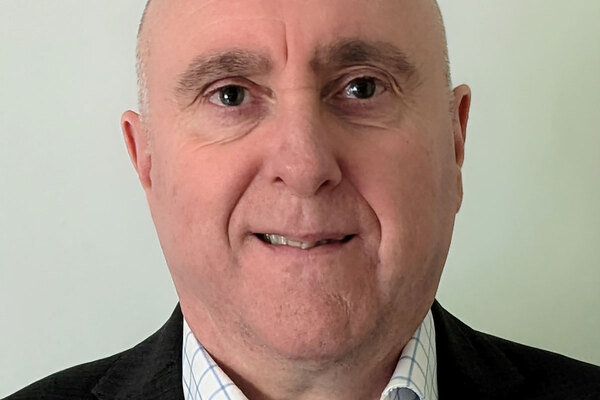You are viewing 1 of your 1 free articles
‘A lot of housing associations’ now looking at for-profit RP model
A number of housing associations are exploring launching their own for-profit registered providers to help fund development, according to a senior industry figure.
Sarah Smith, chief financial officer at Optivo, which owns more than 45,000 homes across the South East and the Midlands, said that many social landlords are investigating the potential of creating or working with for-profit providers to boost their spending power.
The Housing and Regeneration Act 2008 allowed such bodies to register with the Regulator of Social Housing for the first time, and 53 have done so in the past decade, many of them developer subsidiaries or backed by equity firms.
Social Housing revealed last year that London-based Hyde was to become the first housing association to set up its own for-profit vehicle.
Ms Smith was asked at the Social Housing Finance Conference yesterday (20 May) whether she expected more to follow suit.
“Yes,” she said. “I know a lot of housing associations are exploring this route. We are under a lot of pressure and financial constraint as we find ways of investing in fire safety and zero carbon. We must deliver on those before we undertake new development, so finding other routes to deliver new homes is really important. A for-profit is an innovative solution to the challenges we face.”
The pandemic has only increased the demands on housing associations, Ms Smith added.
“COVID-19 has caused major disruption to the sector. The reality is that our capacity, already under real pressure, will be stretched even more in the future. We have to be resilient to find new ways of delivering our purpose – the housing crisis hasn’t disappeared, in fact the pandemic has made it worse.”
Catherine Raynsford, Hyde’s director of stakeholder and investment management, told conference delegates that the 55,000-home association had realised it would have to prioritise spending to meet sustainability, fire safety and quality requirements over building new units.
“It became clear to us that a strategy introducing new equity or alternative sources of funding was critical to continuing to develop,” she said.
“That strategy to engage with equity we estimate will enable us to roughly treble our own development programme. How we’ve gone about that in the first instance is via a partnership with M&G. That will effectively see us working with its newly established shared ownership fund, which will acquire new shared ownership development from our pipeline, and then M&G will own that in its own established for-profit RP.”
Ms Raynsford added: “As part of the same strategy we are in the process of setting up our own for-profit registered provider. That’s a key part of the second institutional partnership we will be entering into and [it gives] Hyde the opportunity to bring the institutional capital partner to sit alongside us in a new registered provider vehicle.”
Setting up its own profit-focused entity would give Hyde control over the tenure of the homes it created, Ms Raynsford said.
“We expect that to be predominately rented. We will be on the board of the registered provider and have long-term partnership and control.”
Without these partnerships, Hyde would have a ceiling on the number of homes it could deliver through its own balance sheet of around 1,000 to 1,500 homes annually, Ms Raynsford noted.
For-profit growth
Will Perry, director of strategy at the Regulator of Social Housing, told delegates at the virtual event that the number of homes owned by for-profit registered providers was doubling annually, having risen from around 5,000 in March 2019 to 10,000 a year later.
“We’re expecting similar growth this year,” he said. “We may be close to 20,000 homes for the end of March 2021.”
He added that expectations remain the same for profit-focused firms as any other social landlord.
“What is challenging to us is that all of these organisations – whether they are primarily a funding vehicle, a means of a developer keeping control of stock or some other model – they are all registered providers.
“The regulatory standards apply to them in exactly the same way as they do to a not-for-profit registered provider. Our expectations of them are the same. If you are a registered provider you are a landlord – that is your function.”
About 50 applications to register for-profit providers were in the pipeline, he added, although “not very many” of these were from housing associations.
“The majority we have in the pipeline are developer subsidiaries or institution-backed in some way.”
Also speaking on the session, John Goodey, chief financial officer at Blackstone and Regis-backed for-profit provider Sage, said that the organisation’s own growth projections would see it reach 20,000 units delivered, built or committed to by the end of 2022. That compares with 8,400 at the end of 2019 and 12,700 at the end of 2021.
Answering a question from the audience on whether for-profits rely on “house price growth and portfolio churn” to deliver the expected level of return, Mr Goodey said: “We [Sage] underwrite on the basis of a certain level of growth; obviously we are seeing an extreme version of that right now in house prices [and] I guess for shared ownership retained equities that’s a positive.
“For us, we’re very focused on growth today, we’ve not sold any units apart from first tranche sales, so our focus today is on growing the portfolio, delivering on our operational and resident charters, and making sure that we build a long-term sustainable business under Sage.”
RELATED








